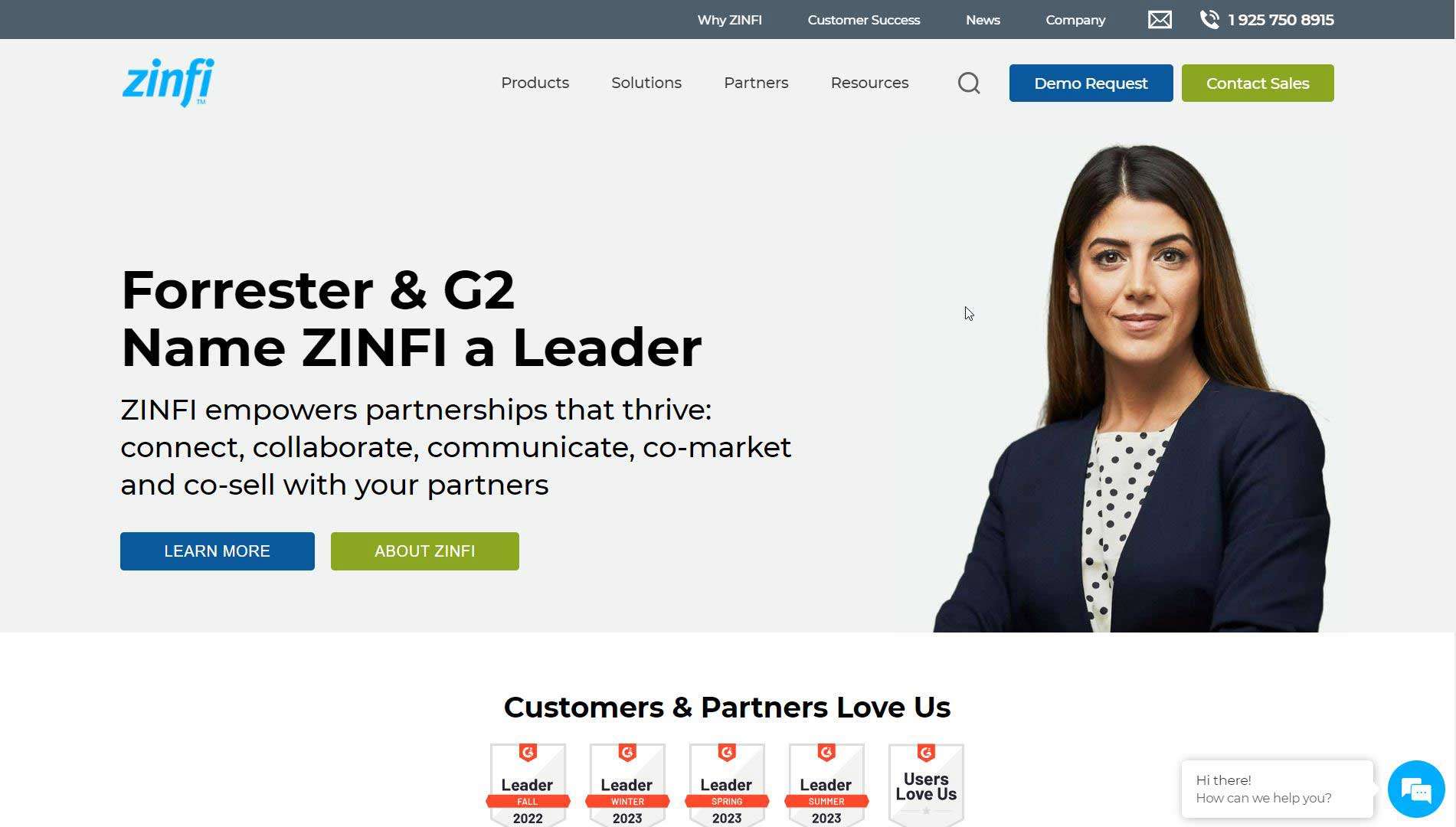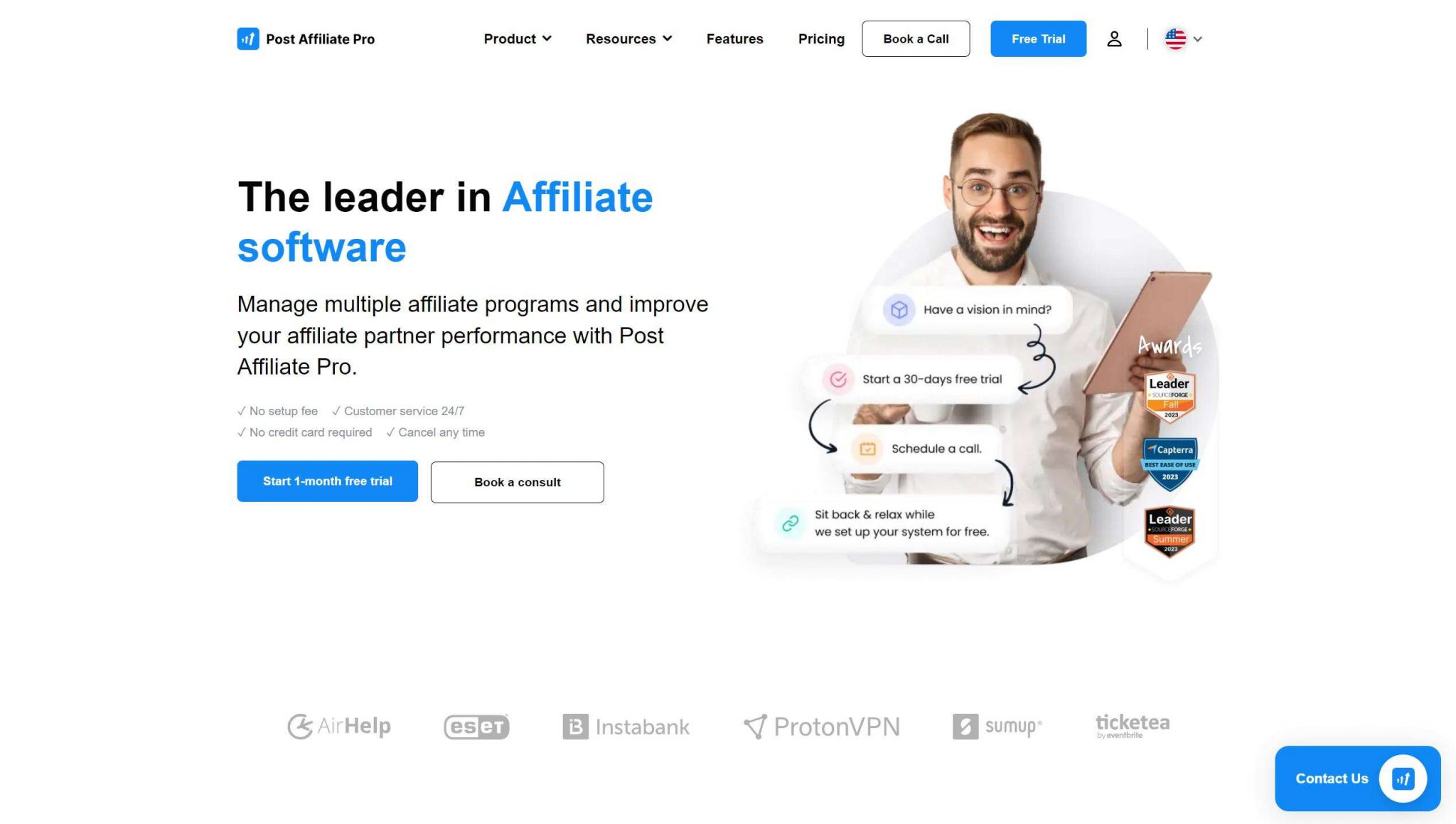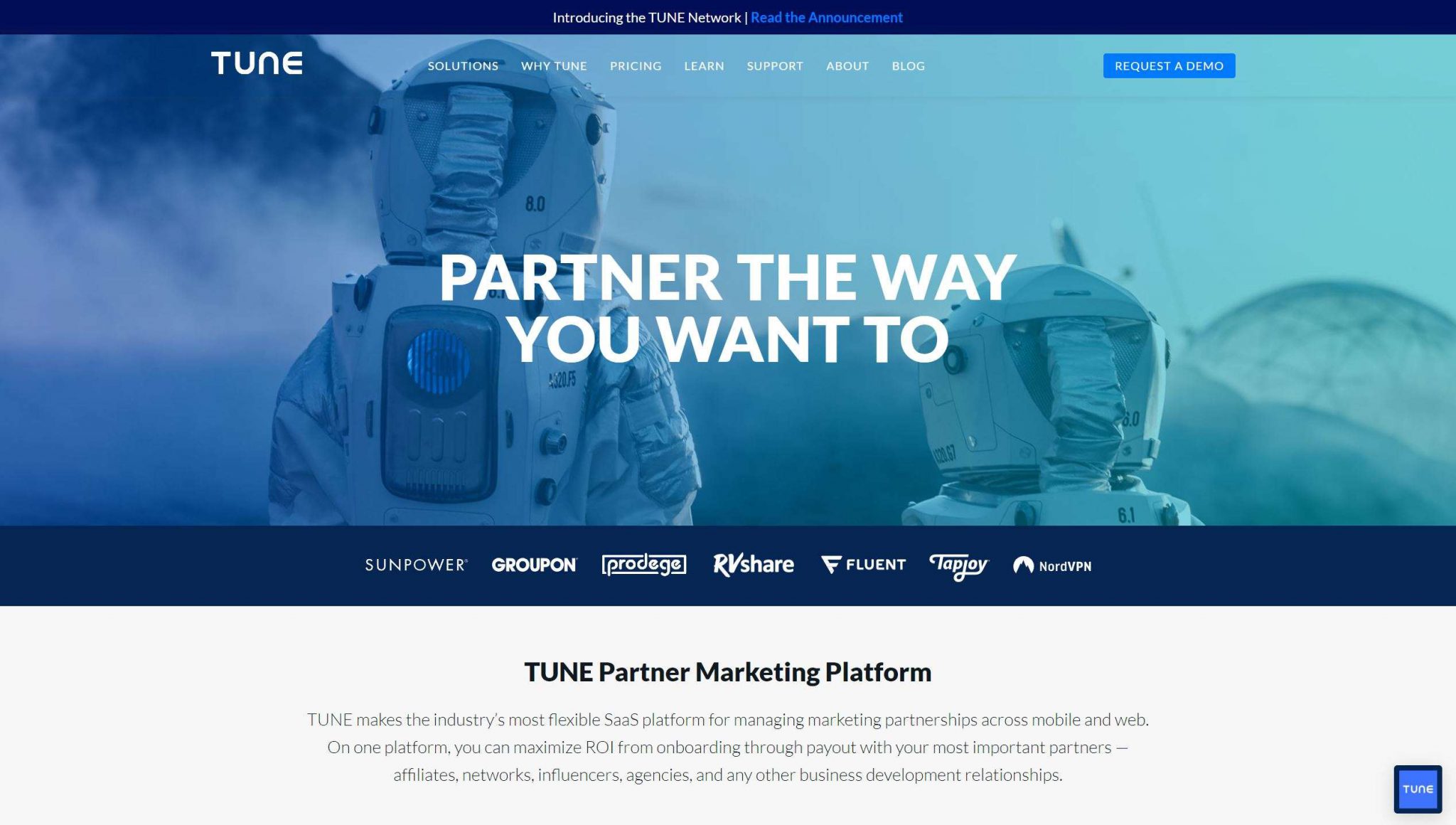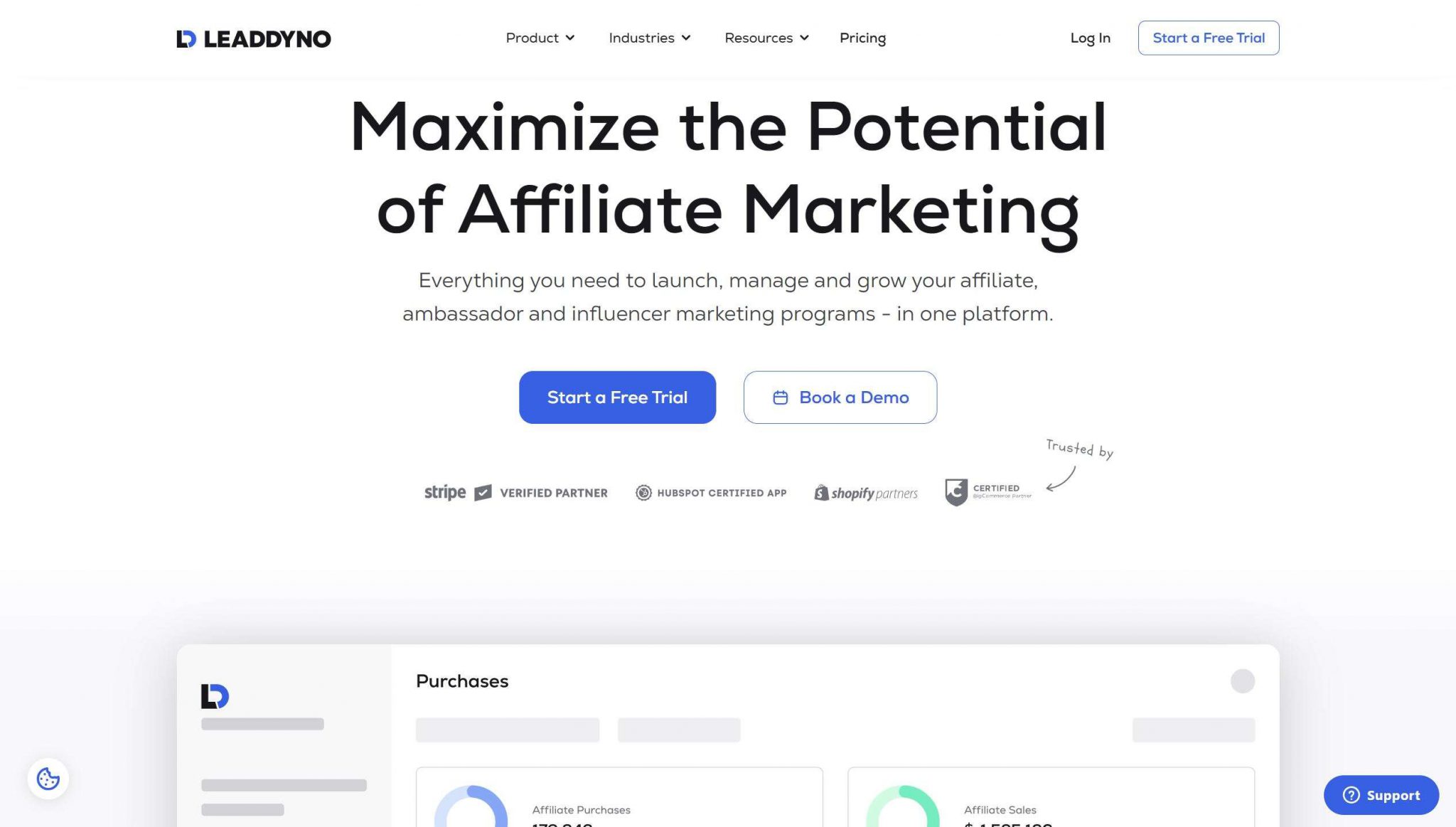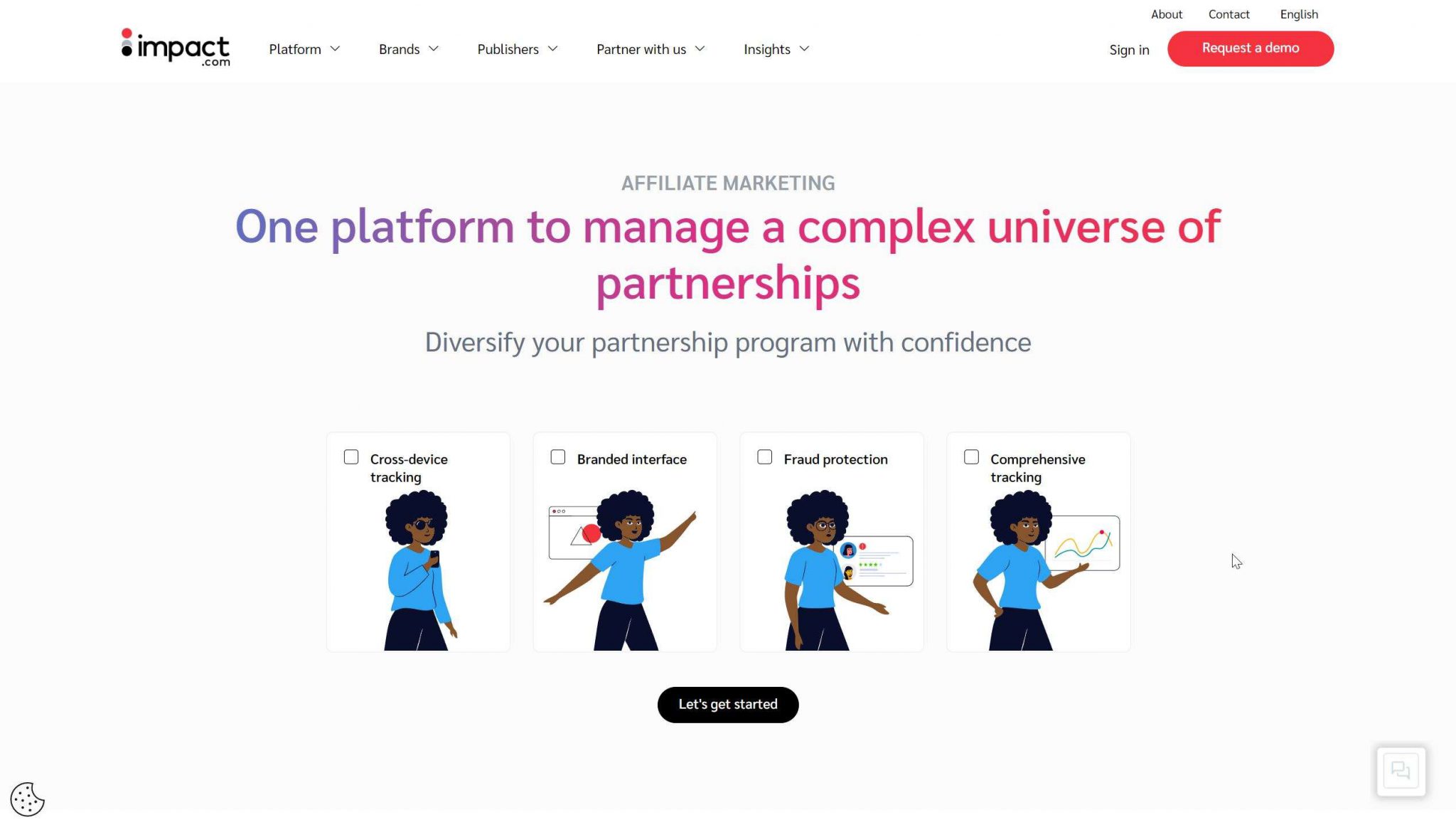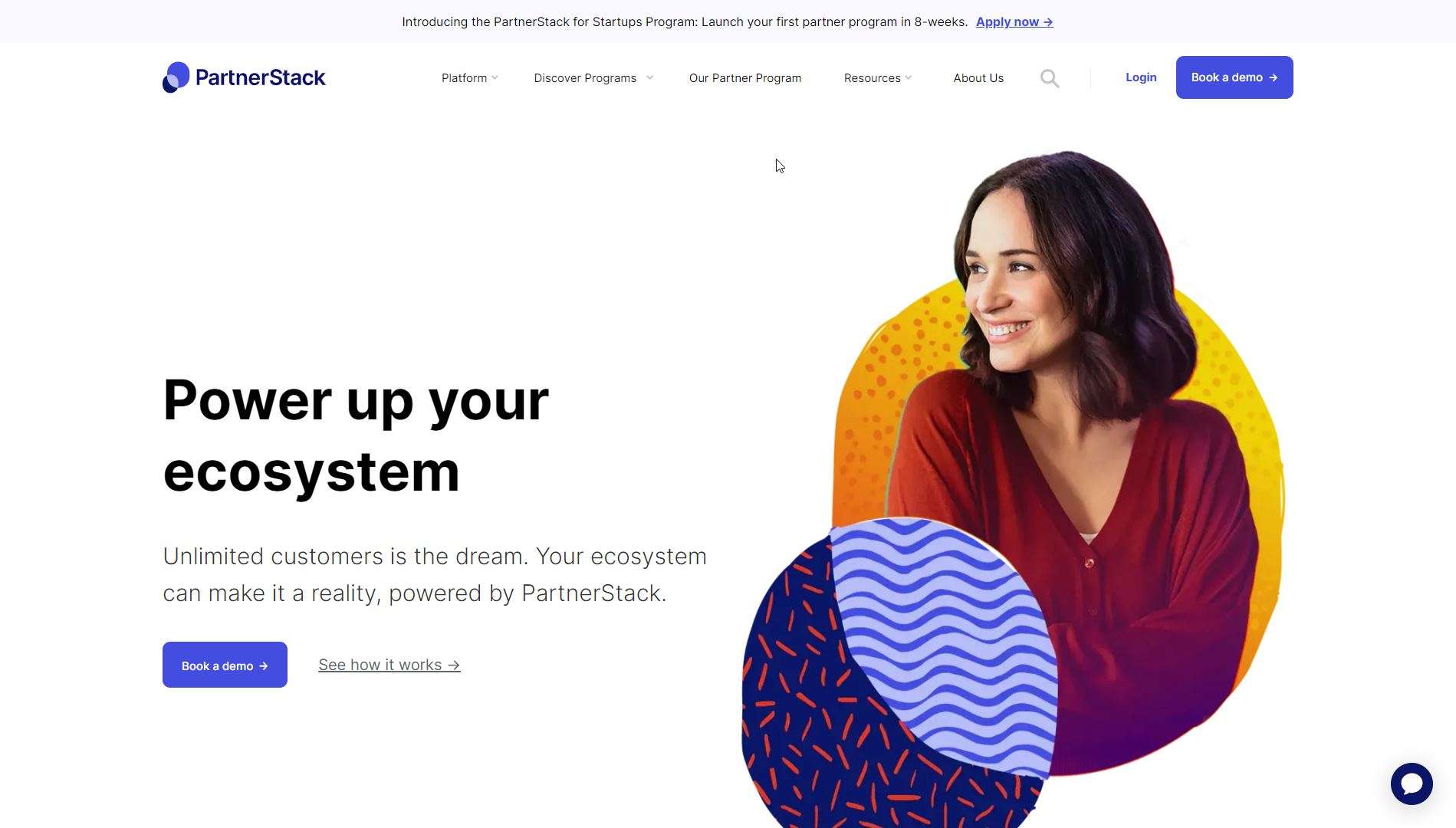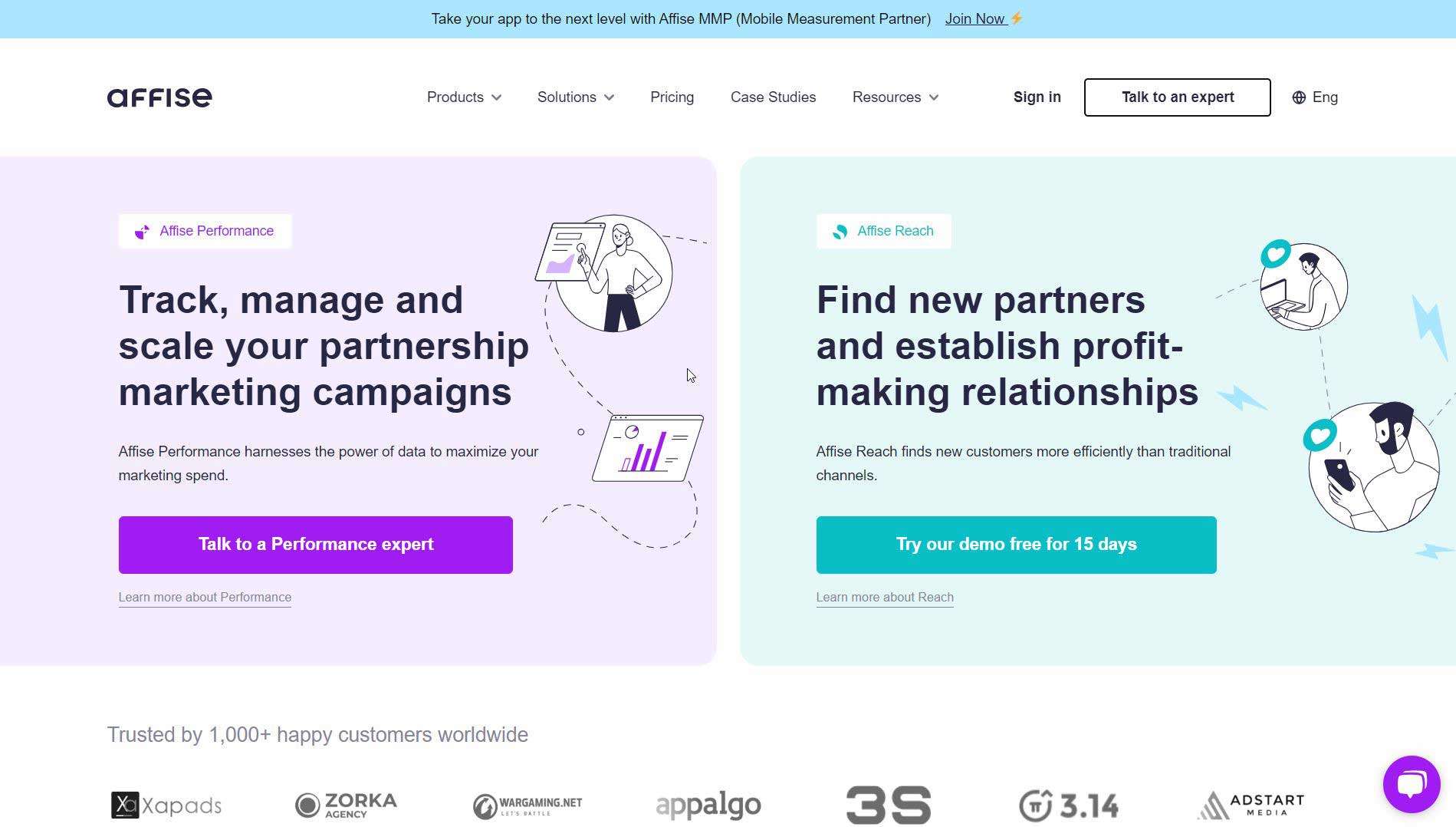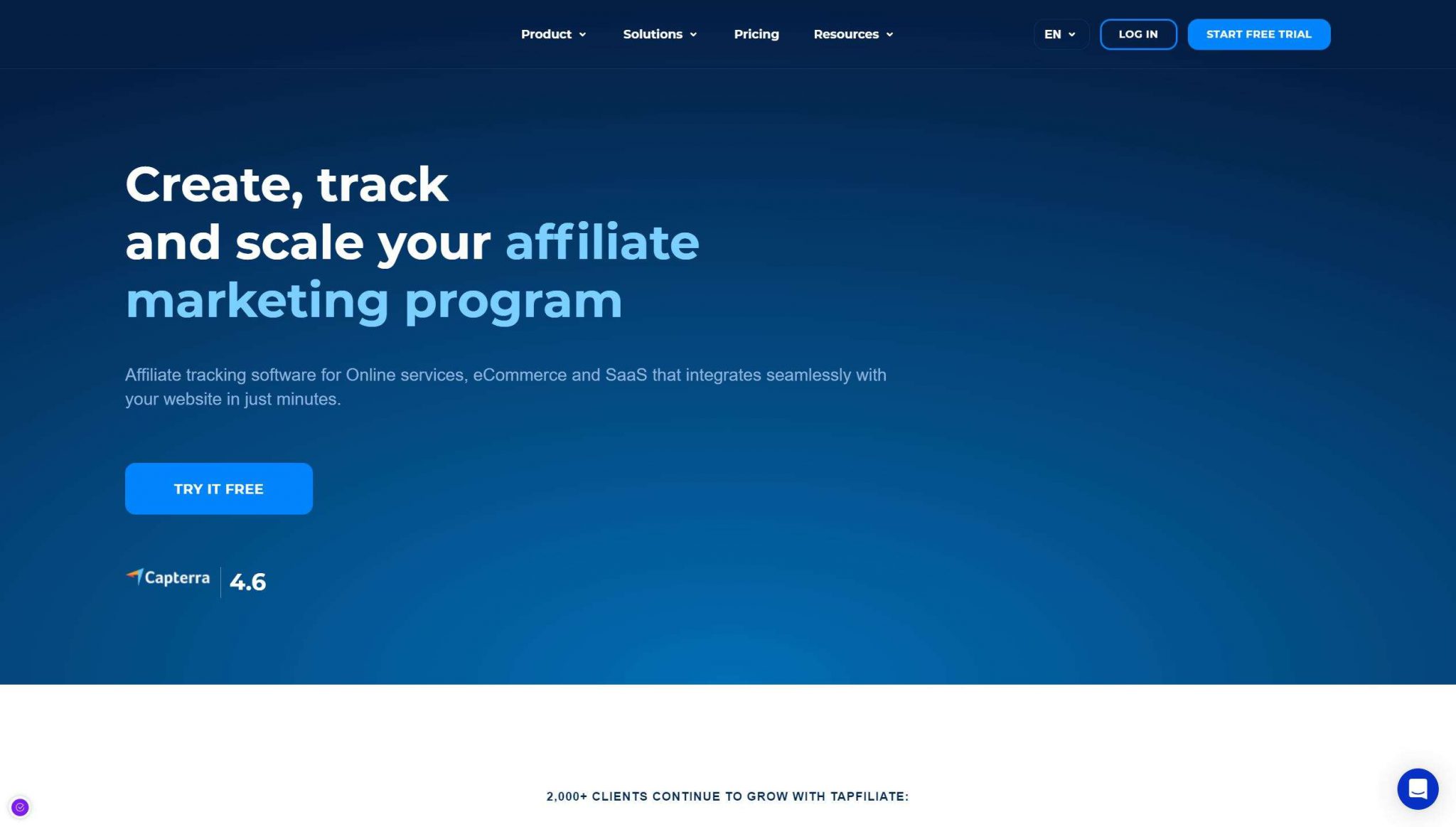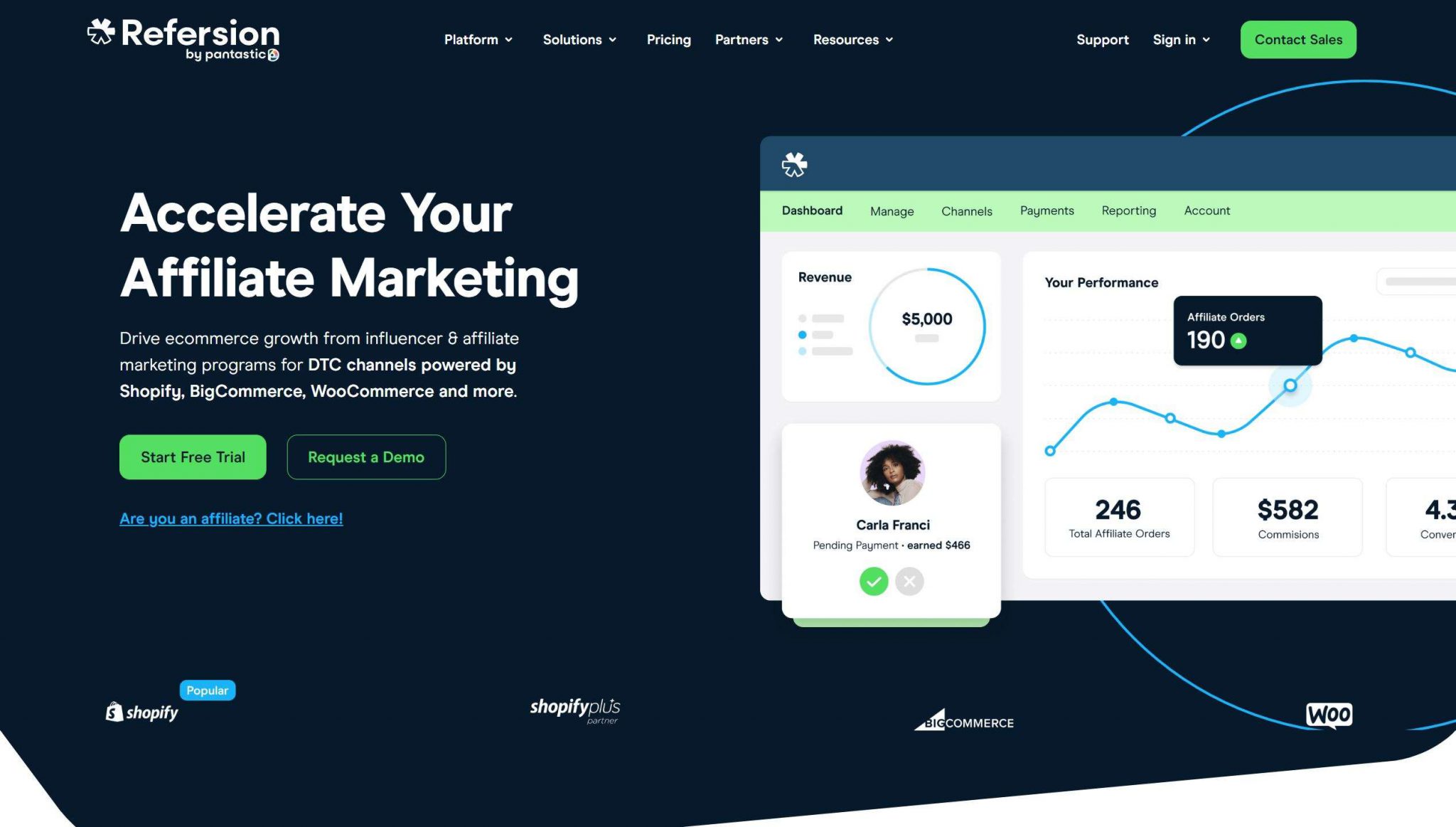Best Practices Articles

Maximizing Affiliate Marketing Strategies Across Sectors
Affiliate marketing's evolution has mirrored the digital age's remarkable transformation. As businesses seek innovative ways to penetrate markets and drive sales, affiliate marketing has emerged as an influential strategy. It stands out for its ability to leverage the influence and reach of individuals and companies to promote products and services. It's an ecosystem where everyone benefits—the affiliate earns a commission, the company increases sales, and the customer discovers products through trusted sources.
This synergy is even more potent when considering the diversity of sectors where affiliate marketing thrives. In the consumer sector, the approach is often direct and engaging, leveraging the broad appeal of products to the public. Manufacturing, by contrast, relies on more targeted, niche strategies that speak to a specialized audience with specific needs. The technology sector often finds a middle ground, offering innovative solutions to a comprehensive yet informed audience.
Real-life examples of affiliate marketing abound, illustrating its versatility and effectiveness. A consumer electronics company might partner with tech vloggers to review their products, driving sales through affiliate links provided in the video descriptions. A manufacturer of industrial machinery might work with trade publications to reach decision-makers in their industry. A software developer could partner with educational platforms to promote their products to students and professionals.
The success of these programs depends heavily on the management tools in place. The right affiliate marketing software can transform a good program into a great one, streamlining operations, tracking performance, and optimizing strategies in real-time. ZINFI's unified partner management platform is exemplary, offering a comprehensive suite of tools designed to empower brands to create, manage, and scale their affiliate marketing programs.
Consumer Sector:
In the consumer sector, the visual appeal of products often plays a significant role in affiliate marketing. Let's take the example of a cosmetic brand that launches a new lipstick line. They could partner with beauty influencers on platforms like Instagram or YouTube, who create content showcasing the variety of shades and the quality of the product. These influencers use affiliate links in their posts, which allows the brand to track sales generated from each influencer's content. Such a strategy drives sales and enhances brand visibility and credibility.

Example 1: High-End Skincare Brand Partnerships
In the bustling realm of the consumer sector, a high-end skincare brand's strategic partnership with influencers can serve as a stellar example of affiliate marketing. This brand, known for its organic and rejuvenating skincare line, has decided to launch its new anti-aging serum. The product promises visible results and is backed by scientific research, but it needs the right platform and voices to reach potential customers. The brand partners with three key influencers: a dermatologist with a significant YouTube following, an Instagram celebrity known for her natural lifestyle choices, and a skincare blogger with a loyal readership.
The dermatologist conducts a detailed video analysis of the serum, explaining the science behind the ingredients and demonstrating its use over time with before-and-after skin images. She shares an affiliate link, offering her viewers an exclusive discount. This approach educates viewers and lends professional credibility to the product.
The Instagram celebrity incorporates the serum into her daily routine, posting aesthetically pleasing images and stories of her using the product in her minimalist bathroom. Her posts include swipe-up affiliate links and a promo code. Her endorsement reaches a broad audience looking for genuine organic products, driving sales.
Lastly, the skincare blogger writes an in-depth review after a month of using the serum, sharing her journey and results. Her article is SEO optimized, containing keywords like "organic anti-aging skincare," "rejuvenating serum," and an affiliate link. Her detailed review and personal testimony provide a relatable narrative that resonates with her readers, encouraging them to try the product.
Through these tailored affiliate marketing partnerships, the brand boosts its sales and establishes its reputation as a leader in effective, organic skincare.
Example 2: Athletic Apparel and Fitness Influencers
Another potent example in the consumer sector is an athletic apparel brand specializing in eco-friendly and high-performance wear. With a new line designed for yoga enthusiasts, the brand targets affiliate marketing focusing on sustainability and active lifestyles. They partner with a yoga instructor with a strong YouTube presence, a fitness model on Instagram popular for her eco-advocacy, and a wellness blog focusing on sustainable living.

The yoga instructor creates videos featuring a 30-day yoga challenge, wearing the brand's new line throughout the series. Each video description includes an affiliate link with a call to action encouraging viewers to join her in the challenge by purchasing the same outfit using a unique discount code.
The fitness model uses her Instagram to showcase the apparel's versatility and comfort during workouts, emphasizing the eco-friendly materials. Her posts, tagged with the brand and featuring affiliate links in the caption, reach an audience deeply invested in fitness and environmental conservation.
The wellness blog crafts a comprehensive guide on choosing sustainable workout gear, featuring the brand's line as a top choice. The guide, rich in keywords like "sustainable athletic wear" and "eco-friendly yoga apparel," provides an affiliate link for readers to shop directly, alongside a detailed review of the brand's environmental commitment.
Each of these examples positions the brand within a niche market, leveraging the visual medium of Instagram and the informative value of YouTube and blogs to reach a diverse yet targeted audience, driving sales through affiliate links.
Example 3: Gourmet Coffee Subscription Service
A gourmet coffee subscription service offers a third illustration of effective affiliate marketing in the consumer sector. The service prides itself on delivering premium, ethically sourced coffee worldwide. The service partners with a well-known culinary influencer on YouTube, a lifestyle influencer with a substantial Instagram following, and a popular food and beverage podcast to expand its market reach.

The culinary influencer creates a series of videos titled "Around the World in 80 Coffees," where each episode features a different coffee from the subscription. He shares his tasting notes, brewing techniques, and affiliate links where viewers can sign up for their subscription, offering them a first-month discount.
On Instagram, the lifestyle influencer posts beautifully curated photos of her morning routine, each day starting with a cup of coffee from the subscription. Her posts, with a warm and inviting aesthetic, include affiliate links in the bio, and she shares stories highlighting the unique backstory of each coffee blend.
The food and beverage podcast interviews coffee growers and discusses the impact of fair-trade practices on their lives. They provide an affiliate link in their episode descriptions and offer listeners a unique code for a discount on their first subscription order.
In these scenarios, affiliate marketing transcends mere product placement. It involves storytelling that connects consumers with the product's journey, from its origin to their cup, creating a compelling narrative that aligns with the influencers' brands and engages the audience on multiple levels.
Manufacturing Sector:
The manufacturing sector benefits from a more focused approach. A company specializing in eco-friendly packaging materials could collaborate with sustainability bloggers and websites dedicated to eco-conscious entrepreneurship. By sharing content highlighting the importance of sustainable packaging and its environmental benefits, the company can position itself as a thought leader while tracking engagement and conversions through its affiliate marketing partners.
Example 1: Eco-Friendly Packaging Materials and Industrial Influencers
In the manufacturing sector, the emphasis on specialized, industry-specific solutions is paramount. A prime example involves a company that produces eco-friendly packaging materials, striving to distinguish itself in a market increasingly driven by sustainability concerns. The company identifies and collaborates with a trio of industrial influencers: a well-respected supply chain management expert with a substantial LinkedIn following, an eco-conscious manufacturing podcast, and a blogger renowned for her insights into green industrial practices.

The supply chain expert utilizes LinkedIn articles to discuss the intersection of eco-friendly materials and efficient logistics. Through a series of thought leadership posts, he explores "Reducing Carbon Footprint with Sustainable Packaging" and "The ROI of Eco-Friendly Materials in Manufacturing." Each post includes an affiliate link to the company's website, where readers can request samples or consultations utilizing keywords such as "sustainable packaging solutions" and "green supply chain."
The manufacturing podcast invites the company's CEO for an interview to discuss the future of sustainability in manufacturing and the role of innovative materials. The episode, peppered with rich, industry-related keywords, offers listeners an exclusive affiliate marketing discount code for the company's services, effectively targeting professionals who can make purchasing decisions.
Lastly, the green industrial practices blogger conducts a detailed case study on the company's packaging materials, demonstrating their durability and environmental benefits. The blog is SEO-optimized with terms like "biodegradable packaging" and "sustainable manufacturing" and includes an affiliate link that directs readers to a landing page showcasing the company's product range.
Through these strategic content collaborations, the company enhances its visibility among a targeted audience, driving engagement and conversions with compelling, informative content seamlessly integrated with affiliate marketing efforts.
Example 2: Precision Machinery and Engineering Blogs
Another scenario in the manufacturing sector involves a manufacturer of precision machinery looking to increase market penetration among small and medium-sized enterprises (SMEs). The company partners with a select group of engineering blogs, industry forums, and a YouTube channel dedicated to advanced manufacturing techniques.

An engineering blog known for its deep dives into machinery effectiveness writes articles on "Maximizing SME Manufacturing Efficiency with Precision Tools." The articles are rich with keywords like "high-precision machinery" and "CNC manufacturing solutions," each piece includes an affiliate link to a white paper produced by the machinery company, requiring an email subscription for download.
Industry forums frequented by manufacturing professionals feature sponsored posts and threads the company's representatives started discussing "Cost-Effective Manufacturing Upgrades." The threads engage the community with questions and solutions, offering affiliate links to schedule calls or demos with the company's sales team.
The YouTube channel showcases manufacturing innovations and creates a video series reviewing precision machinery. The host, a seasoned engineer, discusses the machine's specifications, usability, and the advantages it offers to SMEs. The video descriptions contain affiliate links to detailed spec sheets and contact forms, using phrases like "innovative manufacturing solutions" to boost SEO.
In each of these instances, the company's affiliate marketing strategy is specifically tailored to attract and educate potential customers in the SME sector, using content that emphasizes the technical superiority and cost-effectiveness of their machinery.
Example 3: Industrial Safety Equipment and Trade Publications
A manufacturer of industrial safety equipment targets niche markets by partnering with trade publications and safety consultants to promote its latest line of protective gear. The company's goal is to underscore workplace safety's importance and high-quality equipment's role in preventing accidents.

A trade publication known for its influence in the construction and manufacturing industries features an advertorial series titled "The Future of Workplace Safety," focusing on trends and technologies driving the industry. The series incorporates keywords like "industrial safety innovations" and "protective equipment technologies," including affiliate links to the manufacturer's product catalog or a form to book a live demo.
A safety consultant with a significant following on professional networks like LinkedIn writes articles on "Reducing Workplace Hazards with Proper Equipment" and "Investing in Employee Safety." These articles are optimized with keywords such as "occupational safety gear" and "hazard prevention equipment" and include affiliate links to testimonials and case studies on the manufacturer's website.
Lastly, the manufacturer hosts an industry-specific webinar featuring experts discussing "Best Practices in Safety Management." Registrants are acquired through affiliate links shared by partner sites and include a mix of live demonstrations, expert panel discussions, and Q&A sessions. The webinar is designed to generate leads while educating the audience, using phrases like "advanced safety equipment" to improve search engine rankings.
Each example demonstrates how a manufacturing company can utilize affiliate marketing to reach its desired audience, fostering a reputation for expertise and commitment to safety while driving qualified leads and conversions.
Technology Sector:
The technology sector often sees a blend of broad and niche marketing tactics. A SaaS company, for example, could benefit from affiliate marketing by partnering with business productivity bloggers and offering exclusive trials or discounts. This helps convert readers into users and allows for valuable feedback from a tech-savvy audience, which can be used to improve the product.
Example 1: SaaS Productivity Platform Partnerships
In the technology sector, software as a service (SaaS) companies stand to gain immensely from affiliate marketing by leveraging the clout of influencers and thought leaders within the tech community. A SaaS company specializing in business productivity software illustrates this by launching an affiliate marketing program targeting niche segments of the market.
The company begins by partnering with a prominent business productivity blogger known for her actionable advice and in-depth tool reviews. She comprehensively reviews the SaaS platform, highlighting its unique features, user experience, and integration capabilities. Her review is SEO-optimized with targeted keywords like "business productivity solutions" and "efficiency SaaS tools," which helps to capture search traffic from business owners and managers looking to improve their operations. The article includes an affiliate link that offers readers an exclusive free trial or discount, incentivizing them to try the software. This drives sign-ups and builds a pipeline of potential long-term customers.

Furthermore, the company collaborates with a YouTube tech influencer specializing in productivity hacks and software tutorials. The influencer creates videos showcasing how the SaaS platform can streamline daily business tasks, improve team collaboration, and automate workflows. With a mix of keywords like "productivity software" and "team collaboration platform," the videos are optimized to rank well in YouTube search results. The description box contains affiliate links that track user sign-ups, providing a precise measurement of the campaign's effectiveness.
Lastly, the SaaS company partners with a LinkedIn thought leader who regularly posts about business efficiency and digital transformation. Through a series of sponsored posts and articles on LinkedIn, this thought leader discusses the impact of the SaaS platform on digital workflows and remote team management, incorporating keywords such as "digital transformation tools" and "remote work software." The content, rich with industry jargon and insights, is shared with a network of professionals, many of whom are decision-makers in their respective companies. The posts include an affiliate link for a demo sign-up, driving targeted professional leads to the company.
The SaaS company can reach a broad yet relevant audience through these targeted affiliate marketing partnerships, driving product trials, collecting valuable feedback, and ultimately increasing its user base.
Example 2: Cybersecurity Software Affiliate Marketing Campaigns
Cybersecurity is a critical concern for businesses of all sizes, making it a ripe field for affiliate marketing within the technology sector. A cybersecurity software company seeks to expand its reach by implementing a strategic affiliate marketing campaign focusing on the importance of protecting digital assets.
The first step is a partnership with a tech podcast with a dedicated IT professional following. The podcast hosts discuss cybersecurity challenges and the importance of robust protection strategies in a special series sponsored by the software company. Each episode includes a segment where the hosts share their experiences using the software, integrating keywords such as "advanced cybersecurity protection" and "enterprise security software." The podcast's show notes contain affiliate links, offering listeners a special discount on the cybersecurity software's subscription.

The company also collaborates with an IT security consultant who maintains a popular blog and newsletter. The consultant writes a series of posts explaining complex security threats in layperson's terms and how the software can mitigate these risks. The content is optimized for search engines with keywords like "cybersecurity solutions" and "protect against data breaches," ensuring visibility to those seeking security solutions. Each post and newsletter include an affiliate link, incentivizing readers with a promotional code to purchase the software.
Lastly, the software company works with an online tech education platform that offers courses on cybersecurity. They integrate the software into the curriculum, giving students hands-on experience with the tools they'll use in the field. The platform includes affiliate links in the course materials, and the company discounts students who wish to purchase the full software version for personal use. This drives sales and embeds the software into the students' toolkits as they enter the professional world.
These examples highlight the company's approach to affiliate marketing by partnering with trusted voices in the tech community, offering value to potential customers through education and engagement, and optimizing content with relevant keywords to attract a targeted audience.
Example 3: Cloud Storage Solutions and Tech Forums
Cloud storage is an essential service for individuals and businesses, making it an excellent candidate for affiliate marketing initiatives. A cloud storage company aims to increase subscriptions to its service by targeting tech-savvy individuals who frequent online forums and communities.
The company identifies a popular tech forum dedicated to cloud services discussions and storage solutions. They engage with the community by sponsoring informative threads and posts that discuss the features and benefits of their cloud storage service. The content, containing keywords like "secure cloud storage" and "scalable storage solutions," is crafted to rank highly in search engine results, drawing organic traffic to the forum. The company includes affiliate links within these posts that provide special offers to forum members, such as additional storage space or discounted pricing on long-term plans.

Additionally, the company partners with a tech deals website, which bargain-hunting tech enthusiasts frequent. They collaborate on a campaign where the tech deals website promotes exclusive discounts and bundle deals for the cloud storage service. The website features banner ads, articles, and newsletters highlighting the benefits of the service and the savings users can enjoy. These promotional materials contain affiliate links that track conversions from the tech deals website to the cloud storage service's website, ensuring proper attribution for sales generated through this partnership.
The cloud storage company engages with influential tech bloggers specializing in data management and remote work solutions to expand its reach further. These bloggers create detailed guides and tutorials on effectively using cloud storage for personal and professional purposes, incorporating keywords like "data backup solutions" and "cloud storage for remote teams." Each blog post includes affiliate links that direct readers to the cloud storage service's website, where they can sign up for a subscription or explore its features.
Lastly, the company uses social media platforms by partnering with tech-focused influencers on platforms like Twitter, Instagram, and YouTube. These influencers create engaging content, such as videos demonstrating how to sync files across devices or showcasing the ease of sharing documents using the cloud storage service. Their content includes affiliate links, allowing their followers to access exclusive promotions and discounts.
The cloud storage company maximizes its affiliate marketing efforts by strategically partnering with tech forums, deals websites, influential bloggers, and social media influencers. They effectively reach tech-savvy individuals actively seeking storage solutions, offering them incentives to become subscribers while providing valuable content and insights to assist their decision-making process. This multi-faceted approach ensures that the affiliate marketing campaign resonates with a diverse audience of potential customers, ultimately driving growth in the company's subscriber base.
Given the complexity of the task and the requirement for a detailed analysis, I will provide an expanded analysis for each software tool, offering three pros and three cons to help you understand the strengths and weaknesses of each.
Pros:- Comprehensive Management Suite: ZINFI provides a full spectrum of global affiliate marketing program management tools. This includes partner recruitment, engagement, management functionalities, and a portal for training and incentives, making it a one-stop solution for companies.
- Customization and Scalability: ZINFI's highly customizable platform allows businesses to tailor the experience to their specific needs and scale up as their program grows. This flexibility is precious for companies operating in multiple countries or with complex affiliate structures.
- Advanced Analytics and Reporting: The software offers advanced analytics and reporting features that help businesses track the performance of their affiliate marketing programs in real time, providing actionable insights to optimize campaigns and strategies.
- Complexity for Smaller Businesses: The robustness of ZINFI's platform can be overwhelming for smaller businesses or those new to affiliate marketing, potentially leading to a steeper learning curve.
- Cost: Given its extensive features, ZINFI may come at a higher price point than other tools for small businesses. ZINFI is appropriate for mid-market and large enterprises and might not be feasible for companies with limited budgets.
- Setup and Integration Time: The comprehensive nature of the platform means that companies will need to have a clear strategy for the sequential rollout of various features.
- User-Friendly Interface: Post Affiliate Pro is praised for its intuitive interface, which makes it easy for new users to navigate and manage their affiliate marketing programs without a significant learning curve.
- Robust Tracking: The platform offers accurate and reliable tracking solutions that ensure every affiliate link click and conversion is recorded, providing confidence in the payment and reward process for both affiliates and program managers.
- Customizable Commission Structures: Users can set up various commission structures, including flat rates, percentage-based commissions, and performance milestones, providing flexibility in incentivizing affiliates.
- Limited Integrations with Some Platforms: While Post Affiliate Pro offers many integrations, there may be some eCommerce platforms or business tools that it needs to support natively, which could limit functionality for certain businesses.
- Occasional Glitches and Bugs: Some users report encountering occasional software glitches and bugs that, while typically minor, can affect the smooth operation of the program.
- Cost of Add-Ons: Some advanced features and add-ons come with additional costs, which can add up and increase the overall price for users needing more than the essential functions.
- Flexible and Customizable: TUNE is known for its flexibility, allowing businesses to customize nearly every aspect of their affiliate marketing program to match their needs and goals.
- Robust API for Integration: TUNE's powerful API facilitates integration with existing business systems, making it an excellent choice for tech-savvy companies that require a seamless affiliate marketing management experience.
- Comprehensive Feature Set: The platform provides a wide range of features for affiliate tracking, fraud prevention, and payment management, making it a versatile choice for growing businesses.
- Learning Curve: The extensive features and customization options can present a significant learning curve, particularly for those not technically inclined.
- Cost Structure: TUNE can be expensive, especially for startups and small businesses with tighter budgets.
- Customer Support: While generally helpful, some users have noted that customer support response times can be slow, especially for complex issues.
- Ease of Use: LeadDyno stands out for its straightforward setup and ease of use, allowing businesses to get their affiliate marketing programs up and running quickly.
- Social Media Integration: The platform offers solid social media integration, making it simple for affiliates to share links and for businesses to track the effectiveness of social media campaigns.
- Email Automation: LeadDyno provides email automation tools that help engage affiliates and customers, saving time and resources for the business.
- Basic Reporting Features: The reporting tools, while adequate, may not be as detailed or customizable as those offered by more advanced platforms.
- Limited Customization: There might be constraints on how much the affiliate marketing portal and interfaces can be customized, potentially leading to a less branded experience.
- Occasional Sync Issues: Some users report occasional issues with data synchronization between LeadDyno and other platforms like eCommerce stores.
- End-to-End Partnership Management: Impact offers a comprehensive platform for managing all types of partnerships beyond affiliate marketing, including influencers, strategic business partners, and more.
- Automation Capabilities: The automation tools within Impact save time by streamlining workflows and repetitive tasks in the management of partnerships.
- Marketplace Feature: Impact provides a marketplace feature that allows businesses to discover and recruit new affiliates directly through the platform, quickly expanding their reach.
- Complex Pricing: The pricing model can be complicated, with various tiers and add-ons that may need to be clarified for new users to navigate.
- Steep Learning Curve for New Users: The wide array of features and tools can be overwhelming for new users, requiring a significant investment of time to become proficient.
- Customer Service: Some users have mentioned that while the customer service is generally knowledgeable, it can sometimes be slow to respond to service requests.
- Focus on SaaS: PartnerStack is specifically designed for SaaS companies, which means its features are tailored to software businesses' needs, such as managing recurring revenues and tracking software subscriptions.
- Integrated Marketplace: The platform includes an integrated marketplace that helps SaaS companies find and connect with potential affiliates already familiar with selling software.
- Streamlined Payment Processing: PartnerStack simplifies the process of paying affiliates, including handling different currencies and tax forms, which is a significant advantage for international operations.
- Less Suitable for Non-SaaS Businesses: Companies outside the SaaS realm may find that some of the platform's features could benefit their products or services more.
- Pricing: For smaller SaaS startups, the pricing might be steep, especially when factoring in the percentage of revenue share PartnerStack takes for each transaction.
- Limited Customizability: While the platform is efficient, there might be limitations in customizing the look and feel of the affiliate interfaces to match the company's branding fully.
- Performance Marketing Focus: Affise is designed with performance marketing in mind, offering features like real-time statistics, conversion tracking, and an AI-powered intelligent targeting system to enhance campaign performance.
- CPA Optimization: The platform specializes in cost-per-action (CPA) models, which is advantageous for businesses focused on actions beyond clicks, such as sign-ups or sales.
- User Interface and Design: Affise boasts a clean and modern user interface that enhances the user experience for managers and affiliates.
- Learning Curve: New users may need time to fully understand and utilize all the features and tools available on Affise.
- Integration Limitations: When integrating with certain third-party services or platforms not already part of Affise's ecosystem, there may be limitations.
- Customer Support: While generally responsive, some users have reported that the technical depth of support could be improved for solving complex issues.
- Cloud-Based Flexibility: As a cloud-based platform, Tapfiliate allows users to access their affiliate marketing program from anywhere, particularly useful for remote teams.
- Ease of Integration: Tapfiliate is known for its easy integration with various eCommerce platforms and payment processors, making it a versatile choice for online businesses.
- Customization Options: Users can access a range of customization options to tailor the affiliate marketing experience to match their brand, including creating custom commission structures and affiliate pages.
- Reporting Simplicity: Some users may find the reporting tools too essential, needing more depth of analytics for more extensive or more complex affiliate marketing programs.
- Pricing for Advanced Features: While Tapfiliate offers a competitive base price, accessing advanced features can require moving to higher-priced tiers.
- Email Support-Only: The platform primarily offers support via email, which may be better for users who prefer real-time assistance or have urgent issues.
- Comprehensive Tracking: CAKE is known for its robust tracking capabilities, allowing businesses to monitor the performance of their campaigns across multiple channels in real time.
- Fraud Protection: The platform includes features that help to identify and prevent affiliate fraud, which is crucial for maintaining the integrity of marketing campaigns.
- Scalability: CAKE is built to scale with the business, handling high volumes of clicks and conversions without compromising performance.
- Complex Feature Set: The wide array of features can be challenging to navigate, particularly for those new to affiliate marketing or performance marketing.
- Cost: CAKE may represent a significant investment, particularly for smaller businesses or those starting with affiliate marketing.
- User Interface: Some users may find the user interface less intuitive than other platforms, potentially requiring more time to get accustomed to the system.
- E-commerce Integration: Refersion is highly praised for its seamless integration with popular e-commerce platforms, making it easy for online shops to start tracking affiliate sales quickly.
- User-Friendly Interface: The platform offers a straightforward and clean interface accessible to users of all skill levels.
- Customizable Commission Plans: Refersion allows for flexible and customizable commission plans, enabling businesses to create affiliate structures that suit different products and campaigns.
- Limited Reporting Capabilities: While adequate for small to medium-sized businesses, Refersion's reporting capabilities may need more depth for larger enterprises with complex needs.
- Support Response Times: Some users have noted that customer support response times can be slow, particularly during peak times or for complex queries.
- Pricing Transparency: There is some feedback from users about a need for more transparency in pricing, especially regarding additional charges for features considered essential for some businesses.
This analysis provides a broad overview of the pros and cons associated with each of the top affiliate marketing software tools, giving businesses insights into which platform might best suit their needs based on their size, technical expertise, and specific requirements for affiliate marketing program management.
Conclusion:
In the evolving landscape of the digital economy, affiliate marketing emerges as a pivotal tool for businesses seeking to broaden their reach and boost revenue through reliable and authentic partnerships. This strategy surpasses traditional advertising methods by establishing a network of committed advocates and promoters, each deeply invested in the prosperity of the brand they represent. Such a network is not solely about promoting products or services but nurturing genuine relationships that contribute to mutual growth and success.

Download the Best Practices Guidebook.
Platforms like ZINFI play a critical role in this ecosystem, offering more than just a means to manage affiliates. They provide a comprehensive framework for cultivating these valuable relationships, ensuring each party benefits from the partnership. This approach leads to more authentic promotions and endorsements, as affiliates genuinely believe in the products and services they are promoting.>
As we look towards the future, the convergence of affiliate marketing with advanced technology promises to unlock new horizons of innovation. This integration is expected to facilitate scalability, allowing businesses to expand their affiliate marketing networks efficiently while maintaining the quality of these relationships. Moreover, sophisticated data analytics and AI-driven tools can lead to deeper insights into customer preferences and behaviors, enabling more targeted and effective marketing strategies.
In essence, the future of affiliate marketing lies in leveraging technology to enhance human connections and building more robust, more personal engagements with customers. This approach ensures sustained revenue growth and fosters a sense of community and loyalty around a brand, which is invaluable in today's competitive market. The promise of affiliate marketing, therefore, lies not just in its ability to generate immediate sales but in its capacity to build enduring brand value and customer relationships.
For more information, please check this article.


Best Practices Guidebook
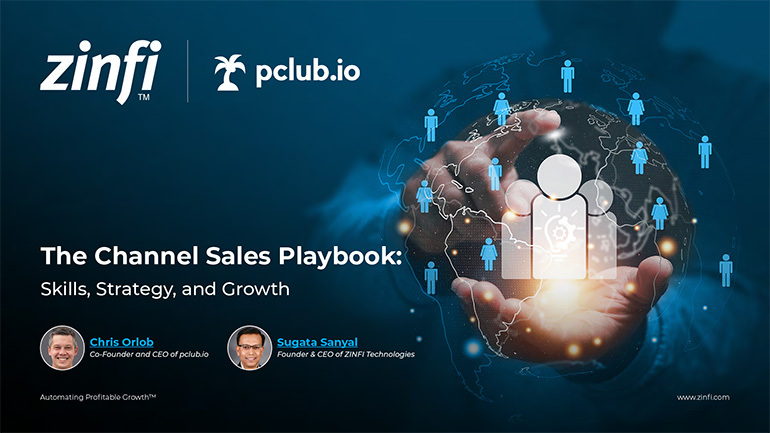 The Channel Sales Playbook: Skills, Strategy, and Growth
The Channel Sales Playbook: Skills, Strategy, and GrowthDownload for FREE
 Blueprints for Vertical Success Best Practices
Blueprints for Vertical Success Best PracticesDownload for FREE
 The Future of Partner Enablement: From Enablement Gaps to Global Advantage
The Future of Partner Enablement: From Enablement Gaps to Global AdvantageDownload for FREE
 Reimagine Sales Development. Build a Smarter Prospecting Engine
Reimagine Sales Development. Build a Smarter Prospecting EngineDownload for FREE
 The Zero Trust Imperative: Fortifying Enterprise Security Against AI-Driven Threats
The Zero Trust Imperative: Fortifying Enterprise Security Against AI-Driven ThreatsDownload for FREE
 PartnerOps Excellence: The Definitive Guide to Scalable SaaS Ecosystems
PartnerOps Excellence: The Definitive Guide to Scalable SaaS EcosystemsDownload for FREE
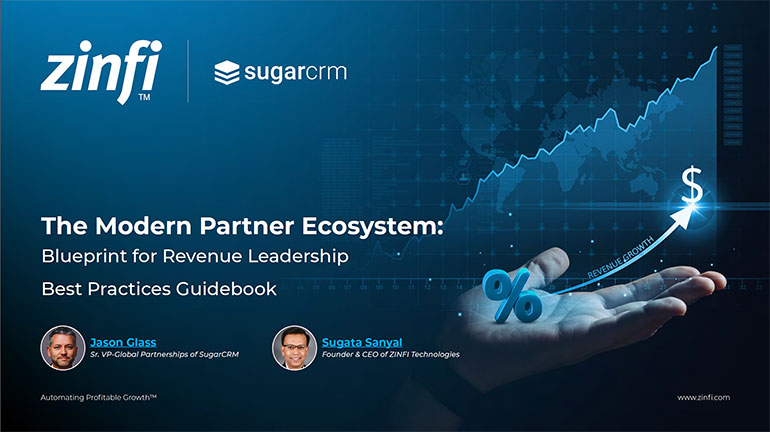 The Modern Partner Ecosystem Best Practices
The Modern Partner Ecosystem Best PracticesDownload for FREE
 Partner Marketing Reimagined: Strategies for Agile, Insight-Led Growth
Partner Marketing Reimagined: Strategies for Agile, Insight-Led GrowthDownload for FREE
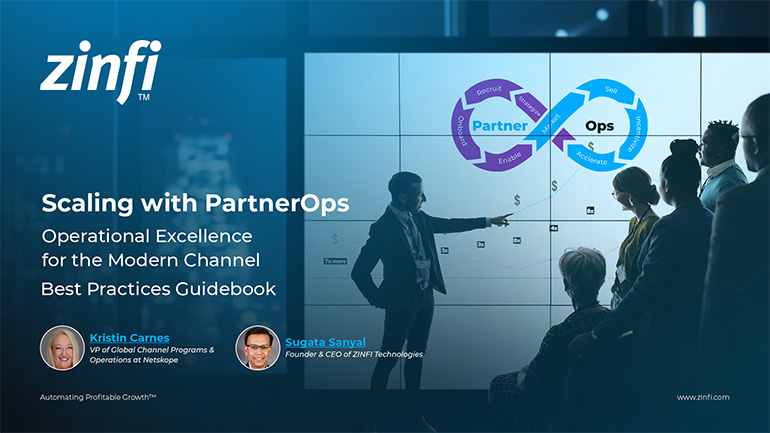 Scaling with PartnerOps Best Pratices
Scaling with PartnerOps Best PraticesDownload for FREE
 Leading with Partner Programs Best Pratices
Leading with Partner Programs Best PraticesDownload for FREE
 The Partner-First Blueprint: Scaling Trust, Intelligence, and Ecosystem Growth
The Partner-First Blueprint: Scaling Trust, Intelligence, and Ecosystem GrowthDownload for FREE
 Unlock Scalable Growth with The Partner Marketing Growth Blueprint
Unlock Scalable Growth with The Partner Marketing Growth BlueprintDownload for FREE
 From TikTok to LinkedIn: Social Selling Across the Generational Divide
From TikTok to LinkedIn: Social Selling Across the Generational DivideDownload for FREE
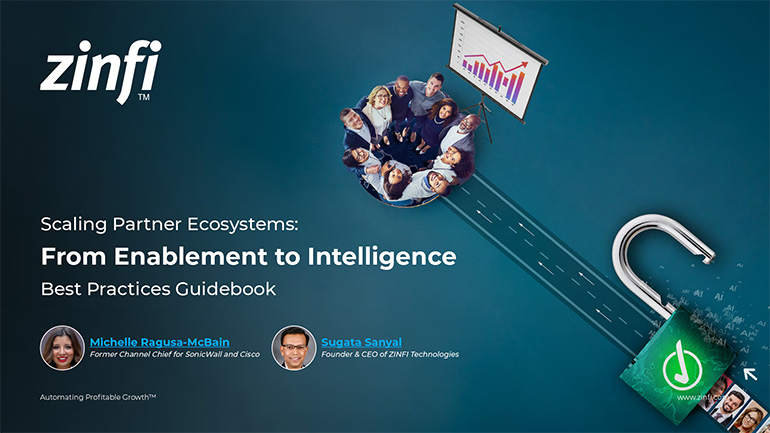 Scaling Partner Ecosystems: From Enablement to Intelligence
Scaling Partner Ecosystems: From Enablement to IntelligenceDownload for FREE
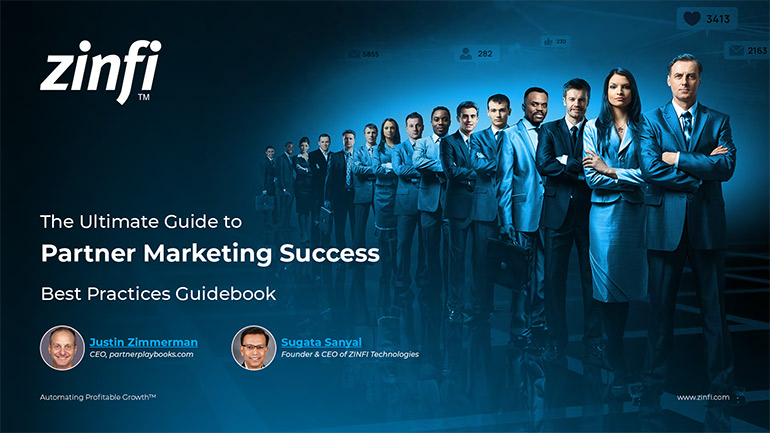 The Ultimate Guide to Partner Marketing Success Best Practices
The Ultimate Guide to Partner Marketing Success Best PracticesDownload for FREE
 How to Start and Scale Partner Ecosystems Best Practices
How to Start and Scale Partner Ecosystems Best PracticesDownload for FREE
 The Evolution of PartnerOps: Past, Present & Future Best Practices
The Evolution of PartnerOps: Past, Present & Future Best PracticesDownload for FREE



